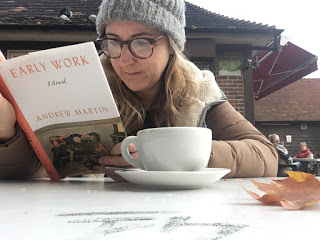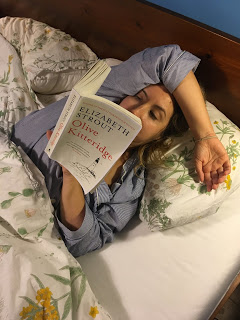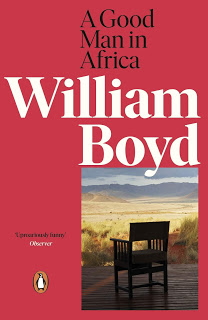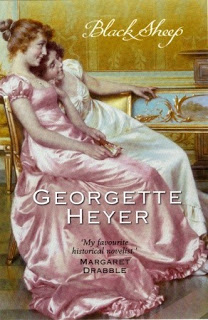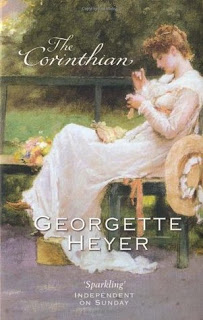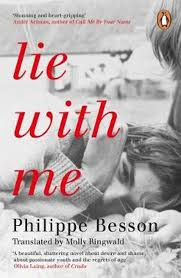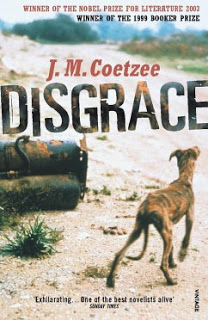I always thought of Boyd as a well-behaved and mildly dull English author. This is because I only know his later works, I guess, because this novel, his first, suggests that he is in fact a badly behaved Nigerian. Or at least he was four decades ago.
The book is about a minor diplomat in Ibadan in Nigeria, and covers a period during which his life implodes: he drinks too much, bungles a work thing, illegally disposes of a corpse, and gets gonorrhoea right when his boss’s daughter is finally ready to get to it. The book was criticised originally by some for being a bit too much of a farce. To this I can only say: these people clearly haven’t been to Nigeria.
Part way through reading the book I had to stop and google Boyd, which is how I found out he was indeed born and grew up in Nigeria. I figured he must have be been, the book is too accurate (Note the cover design, however. This person apparently thinks Nigeria is Kenya).
I read an interesting interview with Boyd, where he said that despite his parents spending thirty years in Nigeria they, like other white West Africans never bought land or identified as Nigerian, so neither does he. He even follows the embarrassing tradition of ‘fictionalizing’ the country with the name Kinjinjin Why?!? No one ever does this for European countries. However that said, it is still an astonishingly vivid picture of 1960s Nigeria, and especially of the small diplomatic world. One small diplomatic world in particular: that of Morgan Leafy. He is an amazing anti-hero, and possibly my spirit animal. He spends the entire novel seething. In these days of ‘taking responsibility for your own experience,’ and ‘being positive,’ he reassures me that not everyone has it all sorted out.
Here he is, passing through a teenagers’ party, where there is a lot of slow dancing and groping:
Morgan had never, never been to a party like that in his life, far less when he was their age, and the unjustness of it all made him tremble with inarticulate envy.
And here he is after talking to his boss:
.. you stinking little shit! he mouthed at Fanshawe’s retreating back. He made twisted vampire claws with his hands and savaged the air in front of his face.
So I see we are not all so very together. Brilliant. The world itself, while comic, is very bleak. Here is the ‘club’ where much of the action happens:
. . there were bar flies and bores, lounge-lizards and lechers. Adulterers and cuckolds brushed shoulders in the billiard room, idle wives played bridge or tennis or sunbathed around the pool, their children in the care of nannies, their housework undertaken by stewards . . they gossiped and bitched, thought about having affairs and sometimes did, and the dangerous languor that infected the hot cloudless days set many a time-bomb ticking beneath their cosy, united nuclear families
Love it. I found it a truly refreshing book. Whereas I have sometimes wondered what the point of his other books were, this one had a lot of heart. I don’t know quite what it was about. I guess, failure, and the special kind of pride of not accepting it, even if that leaves you looking like an idiot.


